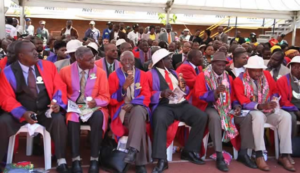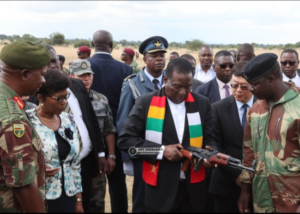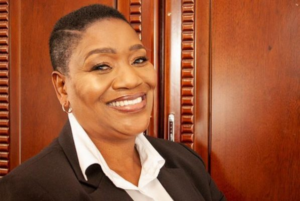A SYMBOL OF INEQUALITY IN ZIMBABWE’S JUSTICE SYSTEM

In the landscape of Zimbabwe’s justice system, the case of Henrietta Rushwaya emerges as a glaring symbol of inequality and the pervasive influence of connections over the law. Recently, Rushwaya, entangled in a scandal of gold smuggling, managed to escape severe legal repercussions, a scenario inconceivable for an ordinary Zimbabwean citizen.
As the President of the Zimbabwe Miners’ Federation and a relative of Martin Rushwaya, a chief secretary in the Office of the President and Cabinet, Henrietta Rushwaya was found guilty of a significant crime: gold smuggling. Yet, the consequences she faced were astonishingly lenient – a mere fine of US$5,000 and an 18-month suspended prison sentence. This stands in stark contrast to the harsh penalties faced by individuals like Benson Muchemanyama and Welldone Darlington Ncube, who received five-year jail sentences for minor gold possession offenses.
The disparity in sentencing between Rushwaya and other less connected individuals is a stark reminder of the deep-rooted issues within Zimbabwe’s judicial system. While individuals of less prominence, such as former deputy finance minister Terrence Mukupe, face strict penalties for lesser crimes, those with political connections seem to navigate the legal landscape with ease. Mukupe and his accomplices, for example, were sentenced to three years in prison for duty evasion on diesel importation.
Henrietta Rushwaya’s case is far from isolated. It reflects a recurring theme of judicial leniency that appears to be influenced by her family ties to President Emmerson Mnangagwa and other high-ranking officials in the ruling Zanu PF party. Her proximity to the political elite, including her service under former vice-president Joseph Msika, only underscores her influential network.
The High Court’s recent decision to convict Rushwaya might have hinted at a shift towards judicial independence, but the leniency of her sentencing suggests otherwise. This perception of partiality is further reinforced by her history of alleged misconduct, including involvement in match-fixing during her tenure as chief executive of the Zimbabwe Football Association, and money laundering, as revealed in an Al Jazeera undercover investigation.
The Al Jazeera report exposed Rushwaya’s discussions about using private jets for gold smuggling and her offers to assist in laundering substantial sums through the Reserve Bank of Zimbabwe’s Fidelity Printers and Refiners. These revelations paint a troubling picture of the intertwining of power, influence, and justice in Zimbabwe.
The Henrietta Rushwaya case raises critical questions about the integrity of Zimbabwe’s judicial system and the equal application of the law. Her story is a poignant reminder of the systemic challenges facing our nation in its pursuit of fairness and justice. As Zimbabweans, we must confront these issues head-on, advocating for a justice system that upholds the principle of equality before the law, irrespective of one’s connections or social standing.




She is the president’s niece and she is doing all this for ED’s sons. Zimbabwe justice system is captured by ZANU PF and going to the courts with anything is a waste of time because the verdict is made in someone’s house and officialized in court.
This is the 3rd time she is getting away with the same crime and if you ever doubt how broken our justice system is, this is a perfect response. Anyone related to ED will always be safe no matter how many crimes they commit.